Unique. Unapologetic. Sumk Clothing. Manufacturing your own custom t-shirts allows you full control over all these various variables and allows you to have a custom shirt profile that is all your own. And because there are so many subtle details to consider, it’s always best to work with a custom t-shirt manufacturer who can help you make your vision a reality.
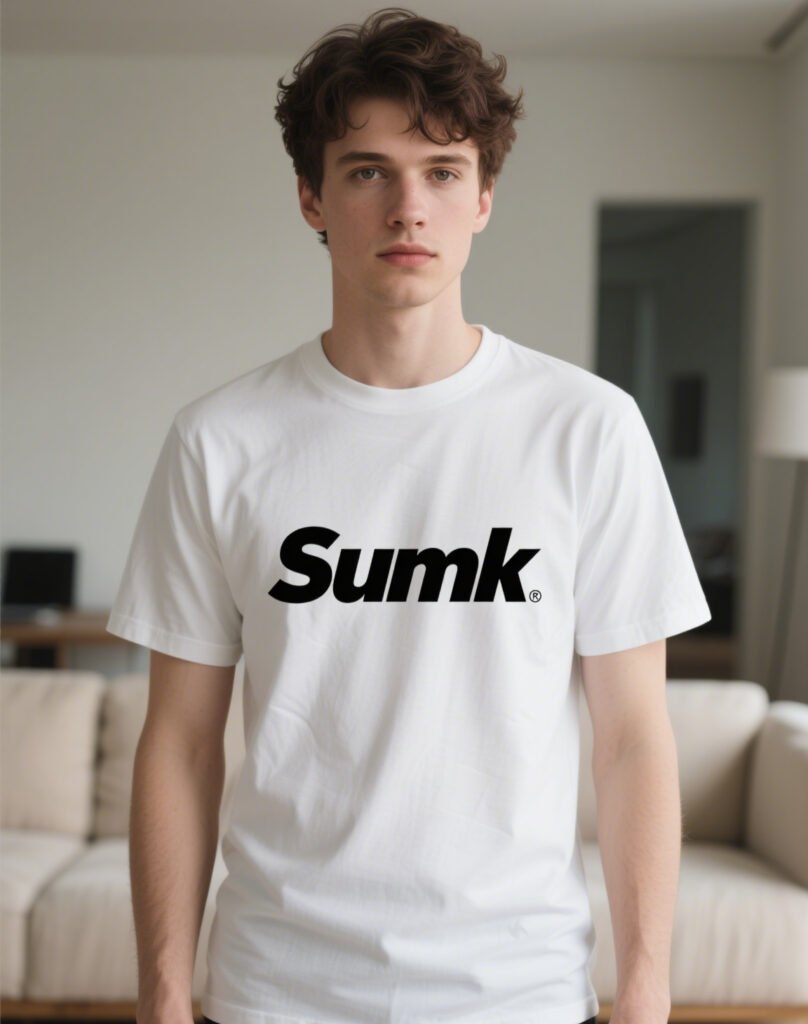
At Sumkclothing, we are a trusted T-Shirt Manufacturer dedicated to delivering high-quality apparel for global brands, startups, and promotional projects. With years of experience in the textile industry, we provide custom T-Shirt manufacturing services tailored to your unique designs, fabrics, and branding requirements.
Whether you need wholesale T-Shirt production, private label T-Shirts, or custom printed T-Shirts, Sumkclothing ensures professional craftsmanship, competitive pricing, and reliable delivery. As a full-service T-Shirt Manufacturer, we support businesses of all sizes—helping you create products that stand out in both comfort and style.
Partner with sumkclothing, your expert T-Shirt Manufacturer for any custom needs, and bring your vision to life with precision and quality.
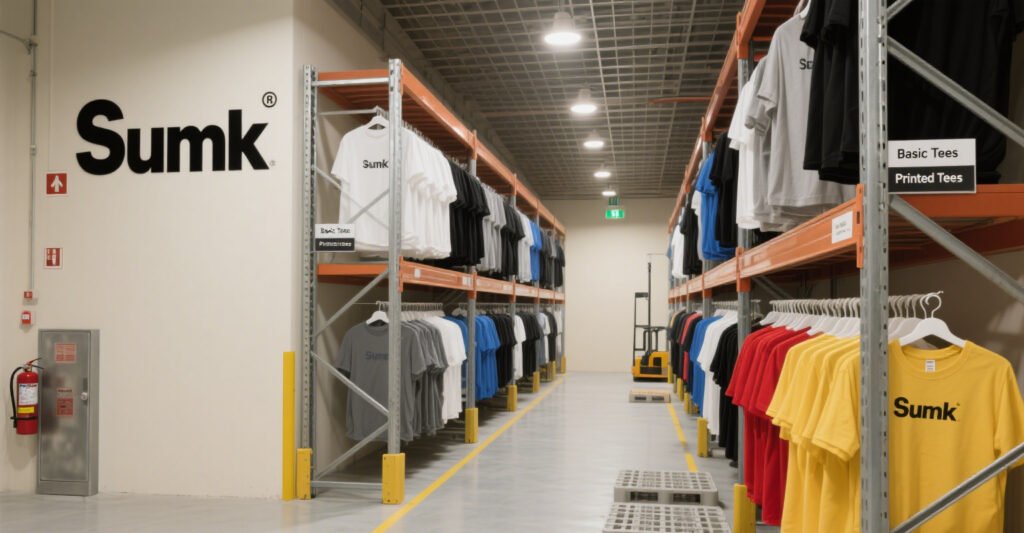

This means that all processes are finished under one roof. You only have to concentrate on design and marketing, while we take care of the rest.
We have hundreds of fabrics and patterns to choose from, ranging from both classic and modern styles.
Choose the size specifically for each body type instead of a usual sizes offered by retailers.
Low MOQ: We offer small MOQ 100 pieces for blank t shirts, and allow for mixing colors and sizes. We can also flexibility to customize your logo on the product.
Send your tech pack or pic of the design you want. We will assist you in verifying your materials and fitting details. The advice about sample fee, MOQ and estimate bulk price.
We work with local suppliers to acquire high-quality materials and assure that we stay below your specified price points. Lead times may be significantly shortened by choosing in-stock products.
Work with our expert pattern makers to achieve the features and fit of each style. Patterns are essentially the blueprint for all clothing items.
Our skilled sample makers hand cut and sew your garments with detail and precision. By creating samples of your clothing, we’re able to test the fit and functionality before mass production.
With your sample approved, we can begin pre-production. Placing your purchase order will initiate your first production run.
Didn’t find the fabric options you want? Dont hesitate to contact us.










Would like to know all techniques we are capable of? Contact us for more details.










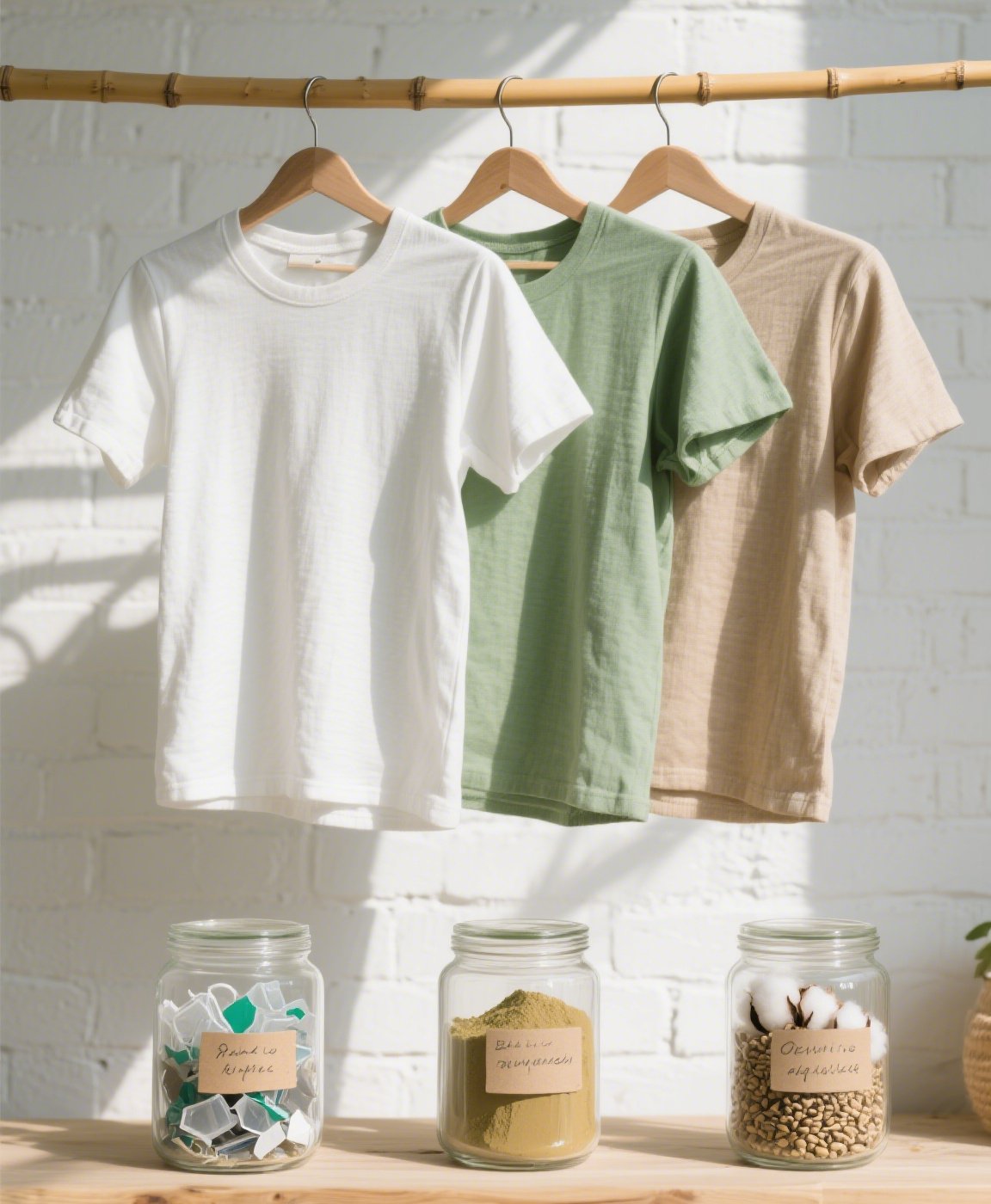
Sumkclothing is a leading ethical and eco-friendly sustainable T-shirt manufacturer, specializing in organic cotton T-shirts, recycled fabric apparel, and fair trade garment production. Our factory follows eco-friendly clothing manufacturing practices, including water-saving technology, low-impact dyes, and renewable energy use. By maintaining a transparent supply chain and strict labor ethics, Sumk ensures that every T-shirt is produced responsibly—making us a trusted sustainable apparel supplier for global fashion brands seeking quality with conscience.
At Sumkclothing, sustainability goes beyond materials—we implement zero-waste manufacturing, carbon-neutral operations, and circular fashion principles to redefine ethical apparel production. As an eco-friendly T-shirt factory and sustainable apparel manufacturer, we integrate advanced recycling processes, renewable resources, and slow fashion values into every stage of production. With sustainability embedded at the core of our manufacturing philosophy, we empower conscious labels to scale responsibly while meeting the growing demand for sustainable fashion manufacturers worldwide.This holistic approach positions Sumkclothing as a global leader in responsible T-shirt manufacturing for the conscious fashion market.
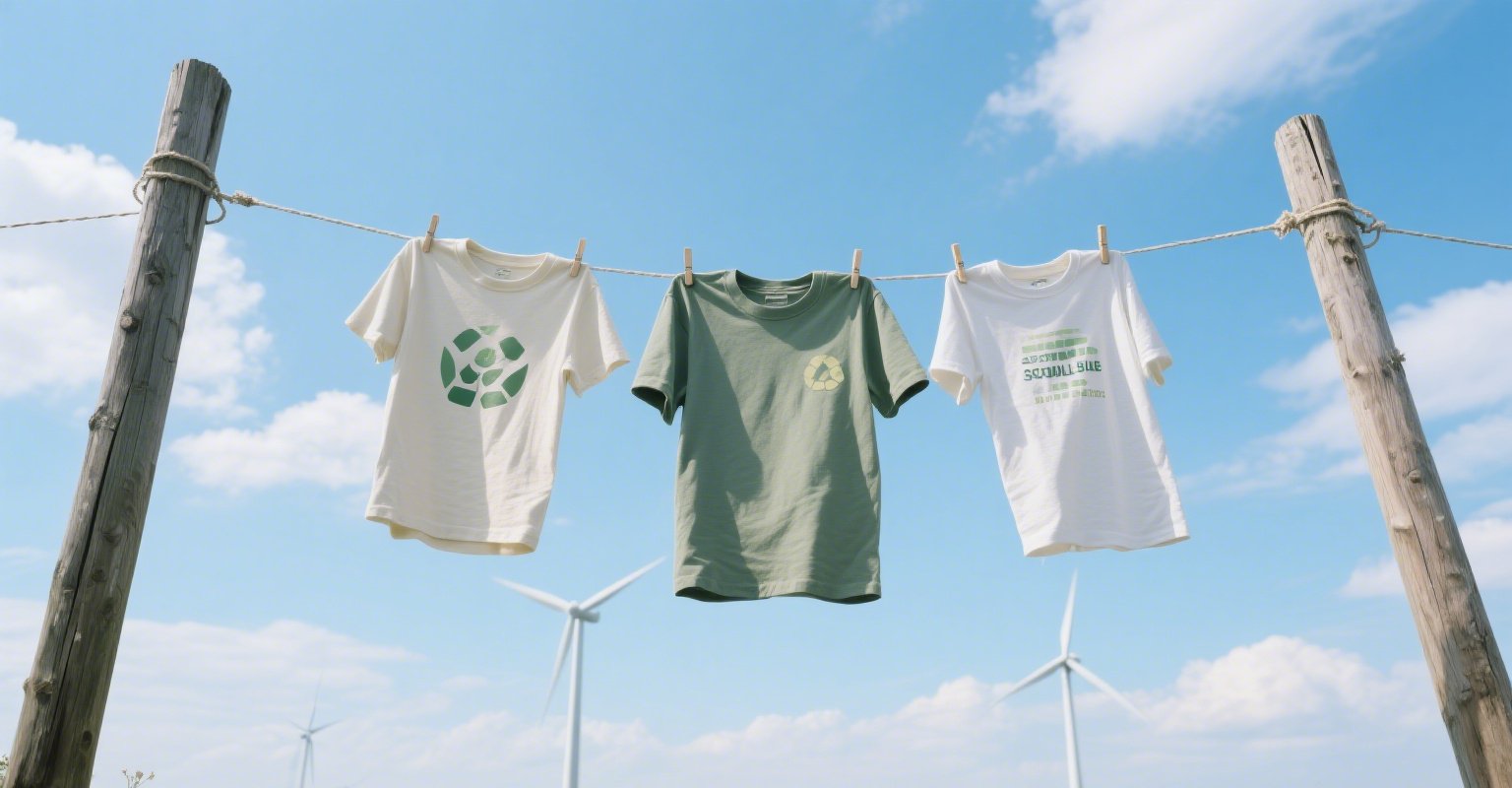
Sumk Clothes Maker is the perfect solution for all your garment and clothing manufacturing needs. From sample development and bulk production to label printing, delivery of goods — the experts at this factory will take care every step along with you!
We offer wide range of products such as women’s dresses or men’s shirts, sportswear and swimwear — there are many styles available which means that whatever kind clothing design you required, we can easily made it.
We have a team of professionals who will turn your design into reality. With our expertise, you can be assured that each product meets the highest standards for quality and craftsmanship while still maintaining an affordable price point.
With more than 100 clothes makers, we can make any volume of orders, big or small. Our turnaround time is very short, which means that it will grow your business quicker!
We ship all over the world through DHL, FedEx, UPS etc., so you don’t have to worry about anything at hand – just relax while our team takes care of everything.
Bring your design to life with Hongyu’s professional service team. We will check the quality of all stitching, measurements and fabrics used in our products before they are shipped off for delivery so that you can be sure you’re getting the highest quality of products.
Start your own clothing line with 100 pieces per design to save money and pamper customers by giving them more options.

Reviews

After 8 months using their quick-dry training shorts across 12 locations: 63% fewer replacements vs previous supplier. The anti-odor tech actually works - members notice the difference. Custom color matching was spot-on for our brand. Bulk orders always arrive 3 days early.

The organic cotton polos with plant-based dyes have become our hotel staff's favorite uniform. Breathability in tropical heat + 200+ washes without fading = game changer. Their design team even incorporated our heritage patterns into the sport shorts collection. Truly partnership-oriented!

Our expedition team put their hiking tees and outdoor pants through 6 months of Arctic testing. The moisture-wicking fabric outperformed premium brands, and reinforced seams showed zero wear. Ethical manufacturing certification was the cherry on top. We're switching our entire uniform supplier to this company.
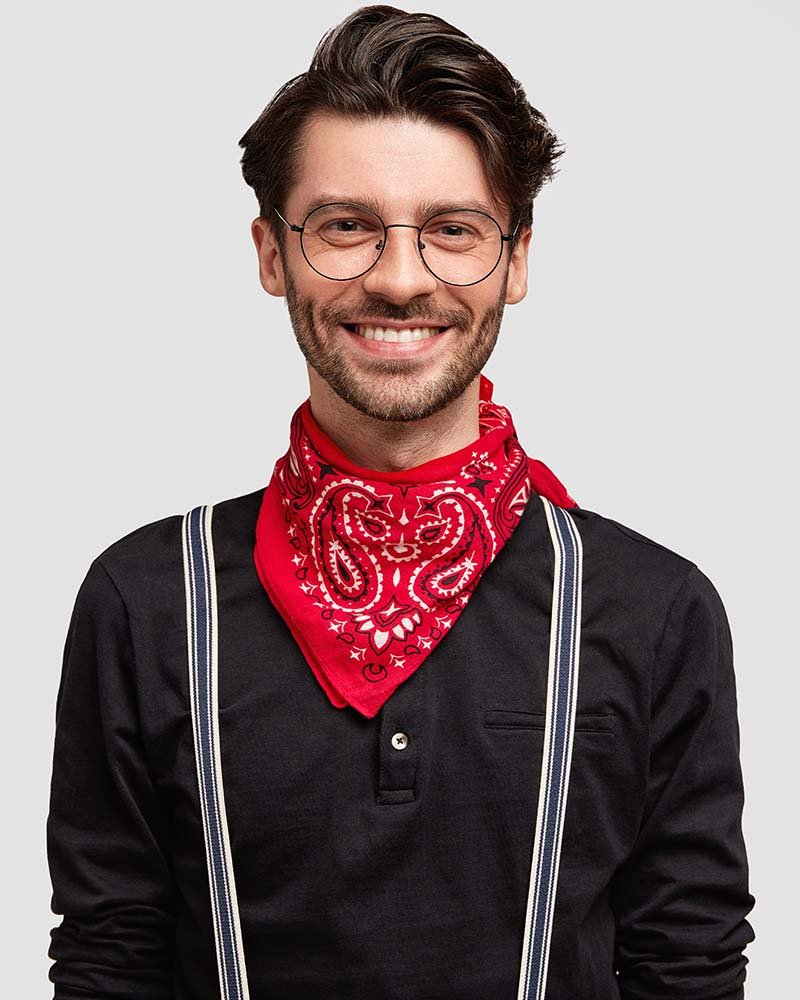
Are you a start-up brand looking to make your mark in the t-shirt industry? You’re probably wondering how to go about finding the right t-shirt manufacturer for your business. A t shirt manufacturer will hold a critical role in the success of your t-shirt business – they will be responsible for bringing your designs to life and ensuring that they are of the highest quality. In this article, we’ll walk you through the basics of t-shirts, from types to the most popular t-shirt designs in the market. We’ll also outline the steps to take when starting your own t-shirt brand, as well as the mistakes to avoid along the way. Read on to know more!
T-shirt literally means “tee shirt.” It comes from the shape of the t-shirt, which resembles the letter “T”.
The T-shirt began its journey in the late 19th century as an undergarment worn by laborers and soldiers. Derived from the one-piece union suit, it was cut into a separate top that resembled the letter “T,” which gave rise to the name “T-shirt.” Its lightweight cotton fabric and easy-to-clean design made it practical for workers in hot environments, particularly in factories and fields. During this era, the T-shirt was not considered outerwear but rather functional underwear.
By the early 20th century, the T-shirt became standard issue in the U.S. Navy and Army. Soldiers wore them as undershirts beneath uniforms, valuing the comfort and breathability of cotton. After World War I, many veterans brought this practical garment back to civilian life, popularizing it among working-class men. This transition from strictly military gear to casual clothing marked the beginning of the T-shirt’s cultural evolution.
The 1950s and 1960s marked the T-shirt’s transformation into a cultural icon. Hollywood actors like Marlon Brando and James Dean made the plain white T-shirt a symbol of rebellious youth and masculinity. At the same time, advances in screen-printing technology gave rise to graphic tees, turning simple shirts into tools for self-expression. This surge in demand led many T-shirt manufacturers to expand production, offering printed designs for brands, bands, and political movements. The era firmly established the T-shirt as both fashion and statement.
Today, the T-shirt is a global wardrobe essential, worn across cultures, ages, and social groups. Luxury labels, streetwear brands, and eco-conscious designers all embrace the T-shirt as a versatile fashion piece. Modern innovations include eco-friendly fabrics, digital printing, and customizable designs, making the T-shirt not just clothing, but a powerful medium of personal and cultural identity. From runways to retail shelves, the T-shirt remains one of the most versatile and influential garments in fashion history.Modern T-shirt manufacturers play a critical role in shaping the industry, focusing on innovations such as organic cotton, recycled fabrics, and digital printing. From sustainable production to high-end fashion collaborations, manufacturers ensure the T-shirt continues to evolve.
T-shirts are still a staple in many people’s wardrobes. They’re comfortable, affordable, and easy to find. And with so many different styles and designs available, there’s a t-shirt out there for everyone.
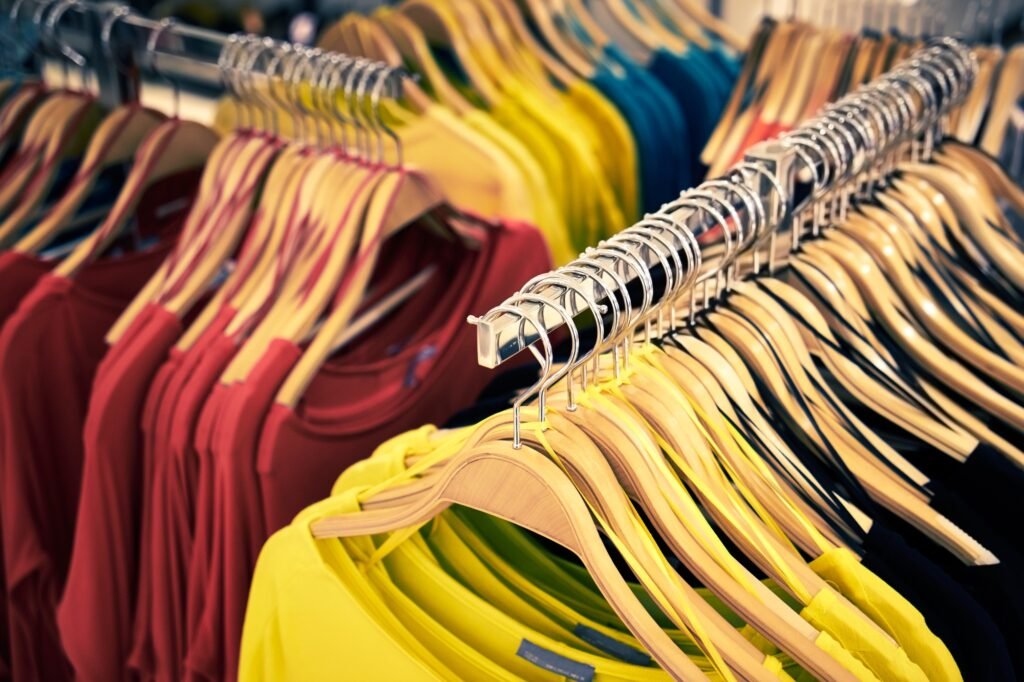
There are many different types of t-shirts available on the market today. Depending on your budget and desired look, you can choose from:
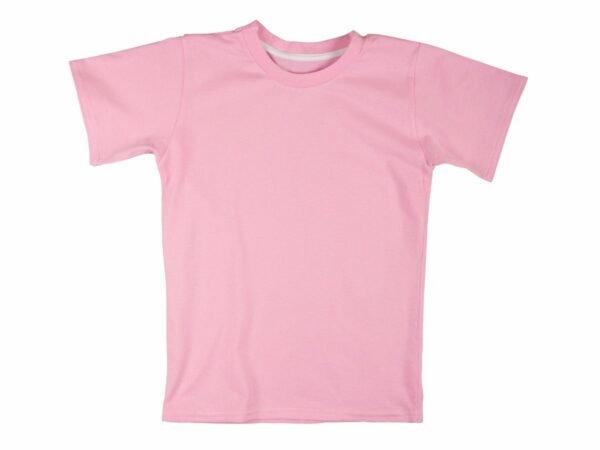
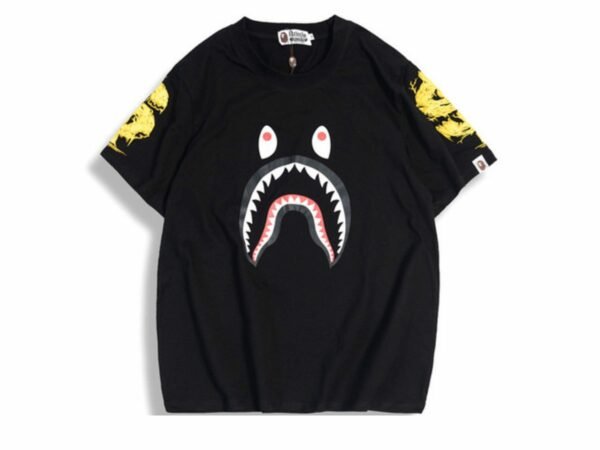
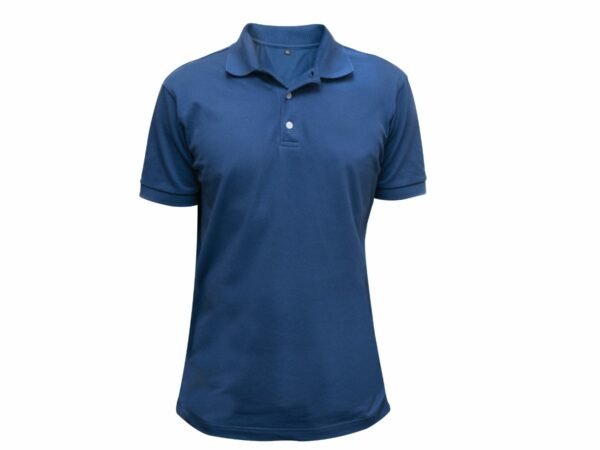
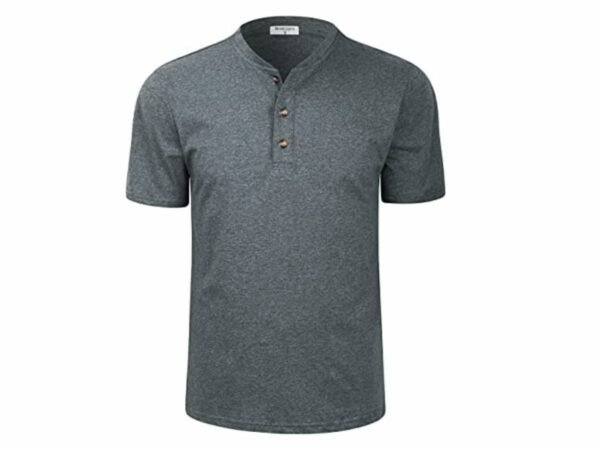
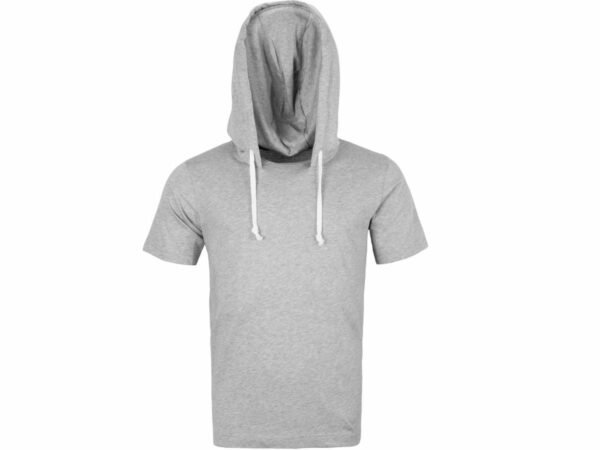
When it comes to t-shirts, there are a variety of different fabric options that you can choose from. The type of fabric you ultimately choose will depend on many factors, including the intended use for the t-shirt, your budget, and personal preferences. In this section, we’ll take a look at some of the most popular fabric options for t-shirts in the market today.
Cotton is the most classic and widely used fabric for T-shirts. Known for its softness, breathability, and natural origin, cotton provides maximum comfort against the skin. It absorbs moisture effectively, making it suitable for warm climates or casual daily wear. Premium cotton types, such as combed cotton or organic cotton, offer even smoother textures and are hypoallergenic, ideal for sensitive skin.
One downside to cotton t-shirts is that they tend to shrink when washed, so be sure to buy a size up if you’re planning on washing your t-shirt frequently. Despite this, cotton remains the top choice for those who value comfort and a natural feel.
Polyester is a synthetic fiber that shrinks less than cotton. It’s commonly used in sportswear and performance T-shirts. Polyester T-shirts are also popular, especially for athletic wear.
It is lightweight, wrinkle-resistant, and highly durable, making it a long-lasting option. One of its key advantages is its moisture-wicking property: polyester pulls sweat away from the skin and dries quickly, keeping the wearer comfortable during workouts or outdoor activities. However, polyester t-shirts can sometimes be less comfortable than cotton t-shirts, as they can feel stiffer and more synthetic.Still, its durability and performance-oriented qualities make it a staple in activewear and professional uniforms.
Blended fabrics, most commonly a cotton-polyester mix, offer the best of both worlds.The cotton provides softness and breathability, while polyester contributes durability and shape retention. This combination reduces shrinkage, enhances wrinkle resistance, and maintains color vibrancy after multiple washes.
Many t-shirts on the market today are made from a blend of cotton and polyester. T-shirts made from blends are versatile, making them suitable for everyday casual wear as well as active lifestyles. They are also more affordable compared to premium pure cotton shirts, striking an ideal balance between comfort and practicality.
Linen is a natural fabric made from flax fibers, often chosen for its airy and lightweight properties. It is highly breathable, making it an excellent option for hot and humid climates.
Linen t-shirts are becoming more popular in recent years, as they offer a stylish and unique look. Linen T-shirts allow better airflow, which helps regulate body temperature. However, linen wrinkles easily and may feel rougher than cotton. Over time, with repeated washing, linen softens and becomes more comfortable. While less common in standard casualwear, linen T-shirts are valued for their relaxed, stylish look and eco-friendly nature.
Bamboo fabric is a sustainable and eco-conscious alternative for T-shirt production. It is naturally soft, often compared to silk or cashmere, while offering excellent breathability and moisture absorption. Bamboo is hypoallergenic and antibacterial, which helps reduce odor and irritation for sensitive skin.
Bamboo t-shirts are a relatively new option on the market. Bamboo is a renewable resource, making bamboo T-shirts an environmentally responsible choice. Although slightly more expensive than conventional fabrics, bamboo garments are increasingly popular among consumers who prioritize both comfort and sustainability.
Spandex, also known as elastane or Lycra, is rarely used alone but is commonly blended with other fabrics to provide stretch and flexibility. Even a small percentage of spandex in a T-shirt ensures greater elasticity, shape retention, and ease of movement. This makes spandex-infused T-shirts ideal for sports, fitness, and body-hugging styles.
Spandex t-shirts are becoming more popular in recent years, as they offer a tight, body-hugging fit. Spandex t-shirts are perfect for those who are looking for a t-shirt that will show off their muscles. However, spandex t-shirts can be less comfortable than other t-shirt options, as they can feel constricting and uncomfortable.
As t-shirt printing has become more popular, more and more people have started to experiment with different styles and fits. Now, there are four main types of fitting styles for t-shirts: the classic fit, the slim fit, the relaxed fit, and the oversized fit. Let’s go over these types one by one.
| Fitting Style | Description |
| Classic | The classic fit is the most common type of t-shirt fit. It’s a standard shirt that fits most people well. If you’re looking for a classic t-shirt that you can wear every day, this is the style for you. |
| Slim | The slim fit is a more tailored style of t-shirt that is tighter fitting than the classic fit. This style is perfect if you want to show off your body shape or if you want to wear a t-shirt that isn’t as baggy. |
| Relaxed | The relaxed fit is looser than the classic fit and perfect for people who want to feel comfortable and casual. This style is great for weekend wear or for when you’re working out. |
| Oversized | The oversized fit is the biggest and most baggy style of t-shirt. If you want to make a statement, this is the style for you. Oversized t-shirts are also great for hiding figure flaws. |
Printing is central to customization and branding in the T-shirt industry. There are many printing options available for t-shirts, and the type of printing you choose will depend on your budget and the t-shirt design you have in mind. Each method has advantages depending on production scale, budget, and design requirements. The most popular printing options include the following:
Screen printing, also known as silkscreen printing, is one of the most traditional and widely used t-shirt printing methods. This process involves creating a stencil (or screen) and using it to apply layers of ink directly onto the fabric. Each color in the design requires a separate screen, which makes screen printing ideal for bold, vibrant designs with limited colors.
Screen printing is highly durable, capable of withstanding repeated washes without significant fading. It works best on cotton and cotton-blend fabrics and is cost-effective for bulk orders, making it a preferred choice for businesses, sports teams, and promotional merchandise. Screen printing is ideal for large quantities, as it is a fast and efficient printing process.
Direct to Garment (DTG) printing is a modern technique that functions similarly to an inkjet printer but applies water-based inks directly onto the fabric. This method allows for highly detailed, full-color designs with smooth gradients and intricate patterns. DTG is particularly suitable for small-batch or custom orders since it requires minimal setup compared to screen printing. It works best on 100% cotton garments, ensuring vibrant color reproduction and soft fabric feel. While DTG prints may not be as long-lasting as screen-printed designs under heavy washing, they provide exceptional precision and flexibility, making them an excellent choice for e-commerce businesses and personalized apparel.
Heat transfer vinyl (HTV) is a type of vinyl that can be heat pressed onto t-shirts. This type of vinyl is available in a variety of colors and styles, making it perfect for creating custom t-shirts. HTV can be applied using an iron or heat press, making it an easy way to add graphics or text to t-shirts.
Heat Transfer Vinyl (HTV) printing involves cutting designs from colored vinyl sheets and applying them to t-shirts using a heat press. The heat activates the adhesive on the vinyl, bonding it to the fabric. This method allows for precise shapes, lettering, and logos, making it popular for custom names, numbers, and promotional items. HTV is durable and produces vibrant, solid colors, especially for simple, bold designs. It works on various fabrics, including cotton, polyester, and blends. While HTV is suitable for small orders and individual customizations, it may not be cost-effective for large-scale production, and complex multi-layer designs require careful layering and heat application.
Sublimation printing is a specialized technique where dye-based inks are transferred into polyester fabrics using heat and pressure. Unlike surface printing, sublimation embeds the ink directly into the fibers, resulting in vivid, long-lasting designs that do not crack or peel. This method is ideal for all-over prints, photographic images, and gradient-heavy designs. However, sublimation is primarily compatible with light-colored polyester garments, as the process relies on the fabric’s ability to absorb the dye. It offers excellent color fidelity and durability, making it a top choice for sportswear, promotional apparel, and fashion pieces that require intricate, full-coverage designs.
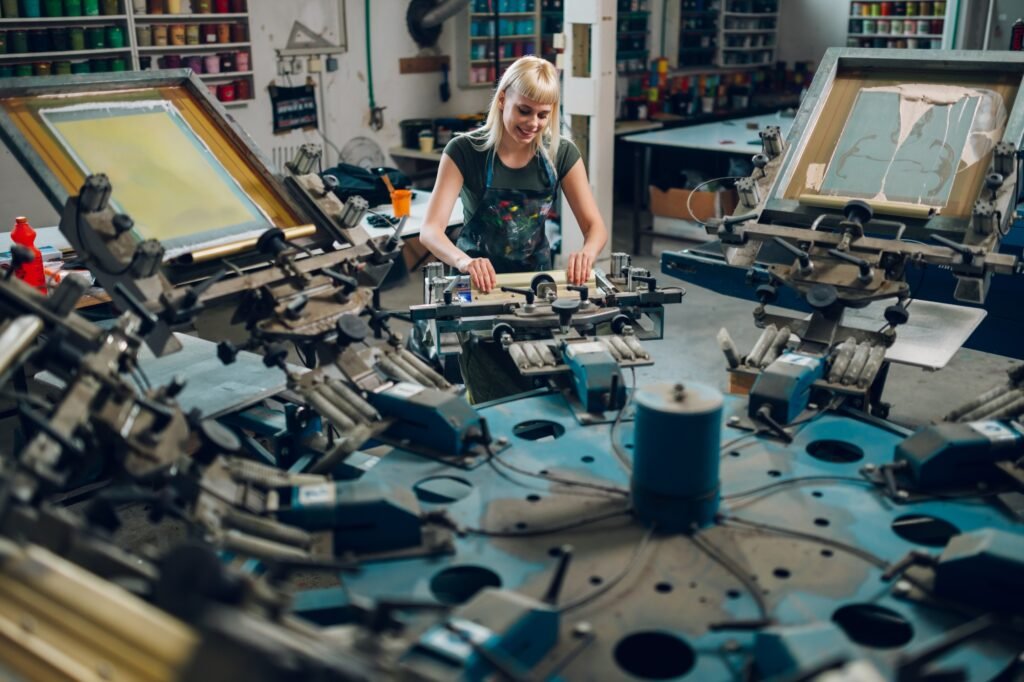
There are a few t-shirt designs that are popular among t shirt factories. Here are some of them:
These t-shirts have a design printed on them. Cotton and polyester are the usual fabrics used for these t-shirts. This is a popular choice for wholesale tee shirt suppliers because it is relatively cheap and the results are good.
Embroidery is where a design is stitched onto the t-shirt. This is usually done by machine but it can also be done by hand. Embroidered t-shirts are more expensive than printed t-shirts but they are also more durable, especially when made by hand. This is most typically used for thick shirts.
This is a raised print that is often used for logos. It is made by printing a design onto a piece of fabric and then stitching it onto the t-shirt. The results are very noticeable and this is a good choice for t-shirts that need to make a statement.
Applique is where a design is cut out of fabric and then sewn onto the t-shirt. This is a more expensive option but it can create some very interesting t-shirt designs.
Starting a t-shirt brand can be a fun and profitable way to turn your creative ideas into a real business. Here are the five steps you need to take to get started:
The t-shirt market is saturated, so it’s important to choose a niche that you can own. Focus on a target audience with specific interests, lifestyles, or values that resonate with your designs. What are you passionate about? What do you know a lot about? What can you offer that nobody else can? Narrowing your focus will help you create t-shirts that people will want to buy.
By narrowing your niche, you can tailor your designs, marketing, and messaging to resonate deeply with your target customers. Conduct market research, analyze competitors, and identify gaps to ensure your brand stands out in a crowded market.
A compelling brand identity sets your T-shirt business apart and builds customer loyalty. This includes developing a memorable logo, consistent color palette, and a clear brand voice that reflects your niche’s values. Professional packaging, cohesive social media visuals, and storytelling around your brand mission further enhance credibility. A strong identity transforms your T-shirts from simple garments into a lifestyle statement, encouraging repeat purchases and word-of-mouth promotion. Be sure to stick with these elements across all of your branding materials, from your website to your social media pages.
Partnering with reliable, high-quality suppliers is essential to maintain product integrity and customer satisfaction. From premium fabrics to durable printing methods, your choice of suppliers directly impacts the look, feel, and longevity of your T-shirts. Working with established manufacturers ensures consistent quality, reduces production delays, and allows scalability as your brand grows. High-quality products also enhance your brand reputation, making customers more likely to pay a premium and recommend your products.
It’s important to work with high-quality clothing suppliers who can produce t-shirts that meet your standards. Do your research and compare prices before making a decision.
One manufacturer you may check out is Sumk Clothing. With over 20 years of experience in clothing manufacturing, we have been able to work with many fashion brands all over the world. We offer a wide variety of products including:
Contact us today so we can help you get started on your t-shirt brand.
The key to success in the t-shirt industry is standing out from the competition with creative designs and unique messaging. Be sure to keep things fresh by regularly releasing new collections and staying on top of current trends.
Creativity is the driving force behind a memorable T-shirt brand. Continuously experiment with innovative designs, unique prints, and limited-edition collections to keep your offerings fresh and exciting. Collaborate with artists, explore emerging trends, and engage with your community for design inspiration. Staying creative not only attracts attention in a saturated market but also encourages customer engagement and social sharing, which are critical for building a strong, recognizable brand online.

Starting a clothing line is not as easy as it seems. Even if you have the most creative and compelling designs, without a good t-shirt manufacturer, your brand will not go anywhere. Here are five tips to keep in mind when sourcing for a t-shirt manufacturer:
Verifying a manufacturer’s reputation through references and case studies ensures you partner with a supplier that consistently delivers quality products and maintains professionalism. This proactive approach reduces risks and streamlines your sourcing process.
Before you narrow down your choices, it is important to do some research on your options. You can look online or ask for referrals from friends or businesses who have sourced for wholesale t shirt manufacturers before. This will help you to get an idea of the different tee shirt suppliers available as well as their rates.
Establishing a clear budget is an essential step when sourcing a t-shirt manufacturer. Understanding your financial constraints will help you filter manufacturers based on their pricing structures, minimum order quantities, and additional costs such as shipping or customizations. It is important to balance cost with quality, as opting for the cheapest option may compromise material standards or craftsmanship.
Once you have done your research, you should have a good idea of how much it will cost to source for a t-shirt manufacturer. Knowing your budget will help you to narrow down your choices and make the sourcing process easier.Aligning your budget with your quality expectations ensures a balance between cost-effectiveness and product excellence, enabling sustainable business growth.
The manufacturing process plays a significant role in the final quality and consistency of your t-shirts. Different manufacturers may use various production methods, including screen printing, digital printing, embroidery, or cut-and-sew techniques. Assessing the manufacturing process is critical to ensure it matches your design requirements, fabric choices, and production scale. Manufacturers with advanced technology and standardized workflows can deliver consistent results, reduce errors, and handle larger orders efficiently, which is essential for scaling your business.
When sourcing for a t-shirt manufacturer, it is important to consider the manufacturing process. Some tee shirt manufacturers may use screen printing while others may use digital printing. each method has its advantages and disadvantages, so it is important to choose the one that best suits your needs.
High-quality T-shirts are the foundation of customer satisfaction and brand reputation. Evaluate the fabric type, stitching, durability, and overall finish before finalizing a manufacturer. Requesting samples or prototype runs allows you to verify quality standards and ensure consistency across larger orders. Partnering with a manufacturer committed to premium materials and meticulous production processes guarantees that your brand delivers products that customers value and trust.Another important factor to consider when sourcing for quality t shirt manufacturers is the quality of the shirts. You want to make sure that the shirts are made from high-quality materials and that they are well constructed. It is also important to consider the printing quality of the shirts since this can impact their overall appearance. Working with a manufacturer that prioritizes high-quality materials and meticulous craftsmanship ensures your products meet customer expectations, enhance your brand image, and reduce returns or complaints over time.
When sourcing for a t-shirt manufacturer, be sure to ask about turnaround time and delivery. You want to make sure that the shirts will be delivered promptly and that they will meet your expectations in terms of quality and appearance.
Reliable turnaround time and on-time delivery are critical to maintaining smooth operations. Discuss lead times, production schedules, and shipping options with potential manufacturers. A reputable supplier should provide transparent timelines and contingency plans for unexpected delays. Prioritizing manufacturers who demonstrate punctuality and logistical reliability ensures your products reach the market on schedule, enhancing customer satisfaction and strengthening your business reputation.
When it comes to t-shirt manufacturing, there are a few key cost factors you should keep in mind. Here are five of the most important:
The cost of the fabric used in t-shirts can vary significantly depending on the type and quality of the material. Higher quality materials will generally be more expensive, so it’s important to choose wisely. It typically costs more to produce t-shirts made from 100% cotton than it does to produce t-shirts made from a polyester blend.
When sourcing bulk T-shirts, material cost is one of the most significant factors affecting your overall budget. Different fabrics, such as 100% cotton, polyester blends, or organic options, vary in price due to quality, durability, and sourcing complexity. Sumkclothing As a professional T-shirt manufacturer. Help you understand the trade-offs between cost and performance, ensuring you choose materials that balance affordability with the longevity and comfort your customers expect. Being mindful of material costs early on allows for more accurate budgeting and prevents unexpected expenses during production.
The cost of t-shirt printing and embellishments will also vary depending on the complexity of the design. Simple t-shirts with one or two colors and no embellishments will be less expensive to produce than t-shirts with complex designs that require multiple colors and special effects. For bulk orders, this typically ranges from $0.50 to $10 per t-shirt.
Printing methods and embellishments can dramatically influence the final cost of your T-shirts. Techniques like screen printing, embroidery, heat transfer, or digital printing differ not only in price but also in appearance, durability, and minimum order requirements. From a manufacturer’s perspective, selecting the right embellishment strategy is key to controlling costs while maintaining high-quality results. Sumkclothing advise clients on how to optimize design complexity, ink coverage, and placement to minimize waste and avoid unnecessary expenses, ensuring your T-shirts are visually appealing without inflating production costs.
The cost of shipping and handling t-shirts will vary depending on the size of the order and the destination. For small orders, it may be possible to find bulk t shirt manufacturers who offer free shipping. For larger orders, it’s important to factor in the cost of shipping when calculating the total cost of t-shirt manufacturing.
Shipping and handling fees can significantly affect the total cost of bulk T-shirt orders, especially when dealing with international logistics. Weight, volume, destination, and delivery speed all contribute to shipping costs. Partnering with a professional manufacturer allows you to streamline packaging, consolidate shipments, and take advantage of negotiated freight rates, reducing overhead. Understanding these costs upfront ensures smoother delivery schedules and avoids unexpected financial strain, making your bulk order more predictable and manageable.
Most wholesale t shirt suppliers have minimum order requirements, meaning they won’t produce t-shirts unless you order a certain quantity. The minimum order quantity (MOQ) can range from a few dozen t-shirts to several thousand, so it’s important to find a t-shirt manufacturer that can meet your needs.
Minimum order quantities (MOQs) are a common factor that impacts both cost efficiency and inventory management. Manufacturers often require a minimum number of units to justify production setup, which can influence per-unit pricing. As experts in bulk T-shirt production, Sumkclothing guide clients in determining optimal order sizes that balance cost savings with storage capabilities. By planning orders around MOQs, businesses can leverage bulk pricing without overcommitting resources or creating excess stock.
Some t shirt manufacturers with custom tags charge setup fees for new orders, which can range from $50 to $200. This is typically a one-time fee that covers the cost of creating the screens or other printing plates needed to produce your t-shirts.
Setup fees, including screen preparation, embroidery digitization, or custom tooling, are one-time costs that can affect your total production budget. These fees are necessary to ensure precision and quality in mass production but can be optimized by consolidating designs or standardizing elements across your T-shirts. Working with a professional manufacturer means you receive transparent guidance on setup costs, helping you make informed decisions that keep your project within budget while ensuring high-quality output.
As anyone in the t-shirt business knows, launching a successful brand is no easy feat. There are a lot of moving parts, from design to production to marketing.
And if any one of those elements is off, it can spell disaster for your business. With that in mind, here are four mistakes to avoid before launching your t-shirt brand:
Your t-shirt designs need to be on point if you want to compete in today’s market. Hire a professional designer, or at least make sure your team has a strong understanding of design principles.
Shoddy construction and poor fabric choice will doom your shirts from the start. Make sure you partner with a reputable manufacturer who can produce high-quality garments.
Even the best t-shirt brands need a solid marketing strategy to reach their target audience. Plan out your marketing campaigns well in advance, and make sure you allocate enough budget to get the word out there.
Once your shirts are out in the world, you need to be prepared to deal with customer inquiries and concerns. Make sure you have a system in place to handle customer service and train your team members accordingly. By avoiding these mistakes, you’ll be well on your way to launching a successful t-shirt brand.
An OEM clothing manufacturer is a company that manufactures clothing for other companies to sell under their own name.
OEM stands for the original equipment manufacturer, so these companies are the original creators of the clothes that they produce. This can be contrasted with a retail clothing company, which sells clothes that have been created by someone else.
OEM clothing manufacturers often:
Launching a clothing line can be daunting, but with the right resources, it can also be an incredibly rewarding experience. And, as we’ve seen, there are some things you can do to increase your chances of success.
At Sumk Clothing, we’re passionate about helping new brands make a name for themselves in the industry, and we want to help you do just that. Contact us today to learn more about our services and how we can help you take your business to the next level!
Are Cotton T-Shirts Good For Workout? When you stand in front of the mirror in the gym, ready to start a hearty training, you may not realize that the T-shirt you are wearing is quietly affecting your sports performance. Many people are used to wearing seemingly comfortable cotton T-shirts when exercising – soft, close-fitting, and […]
Advantages of Custom T-Shirts As a simple and creative medium, customized T-shirt are gradually becoming the first choice for individuals, teams and companies to show their style. Whether it is to show personality, enhance team cohesion, or achieve brand promotion, customized T-shirts have many advantages that cannot be ignored. Self-Expression Custom T-shirts offer a powerful […]
Are you eager to find the perfect custom T-shirts manufacturers to enhance your brand’s apparel collection? Selecting the right manufacturer is crucial for attaining unique designs, high – quality fabrics, and excellent stitching in your T-shirts. With years of experience in the fashion and apparel domain, we’ve scoured countless manufacturers to bring you the top […]
Copyright © 2024 SumkClothing
We will respond to you within 24 hours
Ask for wholesale clothing prices or custom clothing prices
Social Chat is free, download and try it now here!